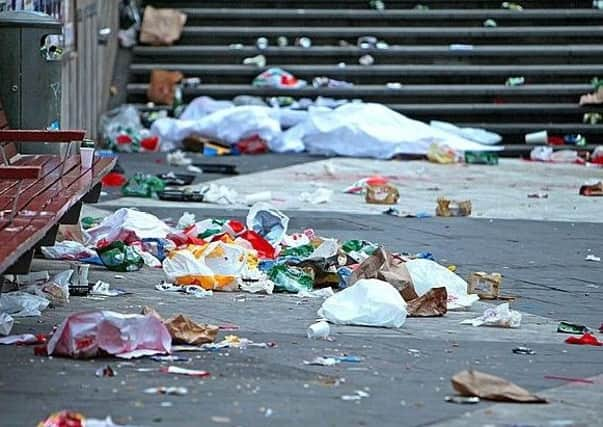Maddy Haughton-Boakes: How a deposit return scheme can help tackle Britain’s shameful litter epidemic


Not only are they unsightly, wasteful and a threat to wildlife, but many of them are washed into our streams, rivers and waterways, and eventually our oceans, where the damage they cause is now well-documented.
Last year, in just two hours, CPRE’s Green Clean collected over 2,150 littered bottles and cans in a small part of central Sheffield alone – just a snapshot of a pollution crisis that we saw repeated across the country.
Advertisement
Hide AdAdvertisement
Hide AdA well-designed deposit return system will go a long way to preventing this harmful blight on our natural world by introducing a small, but effective, financial incentive for people to return the containers for recycling. Surely that’s something everyone can get behind?
Unfortunately, it’s not that simple. Powerful vested interests in the packaging, waste management and drinks industries don’t want to see a threat to their profits, or take financial responsibility for the waste they create.
And it’s clear why. The onus for cleaning up our green spaces, towns, cities and countryside often falls on cash-strapped local councils with little money to spare for essential services, let alone effective waste and recycling systems.
In contrast, drinks and packaging companies have enjoyed a free ride. Last year, the packaging industry paid only £73m towards the clean-up costs of dealing with its products, while taxpayers were left to foot the remaining 93 per cent of the £1bn bill.
Advertisement
Hide AdAdvertisement
Hide AdDrinks container production continues to rise, whilst our recycling rates are static or declining. Drinks companies try to look like their doing they’re bit by printing ‘100 per cent recyclable’ on their cans or bottles, but it is not enough. Our recycling systems need an overhaul, and the companies that are so intent on flooding our lives with single-use drinks containers need to pay their fair share.
The good news is that the Government recognises this, and is stepping in to solve the problem by committing to introduce a deposit return system on cans and bottles
These systems are well-established and successful in many places across the world, and countries with these systems manage to achieve recycling rates in excess of 95 per cent. But many parts of the packaging industry are intent on scuppering these plans in England, or watering them down to such an extent that they will prove ineffective.
We’ve been here before. In 1981, a Bill was introduced in the House of Lords to ensure we have a deposit system but it was narrowly rejected, with peers such as Lord Sainsbury voting against it.
Advertisement
Hide AdAdvertisement
Hide AdVested interests from the packaging, retail and drinks industries lobbied ferociously to prevent the burden for dealing with litter from shifting from the public ‘to those who caused it – those who made, sold and bought the products’. Once again we see companies putting their profits before pollution. To secure victory, industry promised ‘voluntary action’ to deal with the waste it was generating. Almost 40 years on, the scale of our litter crisis is clear evidence that that they have not kept their promise.
The Government has a huge opportunity to learn from the mistakes of the past and introduce an effective deposit return system that will reduce litter, increase recycling and shift the financial burden of dealing with our waste to those who created it in the first place.
We’re urging Environment Secretary, Michael Gove, to introduce a scheme that collects and accepts all bottles, cans and cartons of all sizes, creating a system that will boost our recycling industry, create jobs and be paid for by producers.
Litter is not just an environmental problem. It evokes so many emotions – from anger to despair – and creates real barriers between people and places, preventing us from enjoying and connecting with our beautiful countryside.
Advertisement
Hide AdAdvertisement
Hide AdBy delivering the best possible deposit system, this connection can be restored, and decades of allowing producers to escape the costs of their products can be reversed.
Maddy Haughton-Boakes is a Litter Campaigner at the Campaign to Protect Rural England.